|
Solar Powered Laptop Computer
|
 |
| A while back I got
an email from a writer who likes to work most of the day out in a large shed, some
distance from his house. According to the email, the shed has no power and the
distance is so great that the guy said that running a long extension cord all the
way out there was impractical. So, the guy wanted to know what it would take to
power his laptop computer and a small fluorescent lamp for 8 hours each day using
solar power. |
|
|
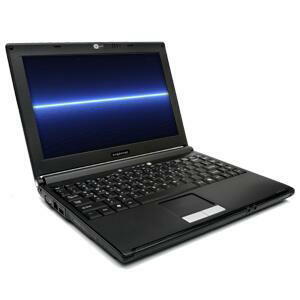 |
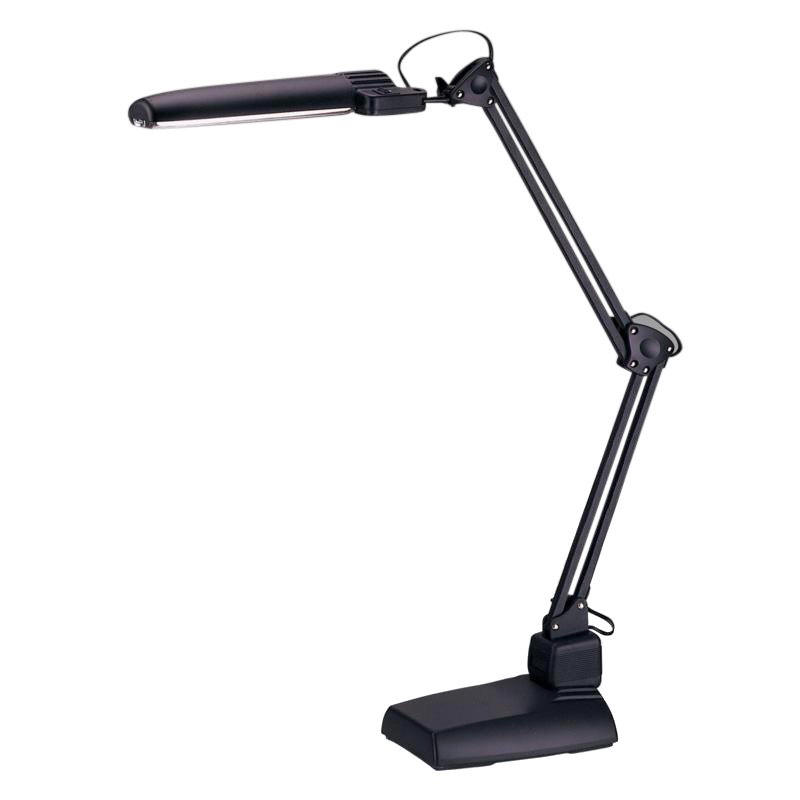 |
|
Laptop Computer |
15w Desk Lamp |
|
| The
guyís request is not unusual. This sort of thing comes up all the time. Letís see
what it would take. This kind of thing might be needed by someone camping or
staying in a cottage by a lake where power is not available. |
| His
laptop computer averages about 40 watts. The fluorescent light is a 15 watt unit.
Both run off 120vac. He would like to be able to work even if the sky was cloudy.
So, some kind of battery will be needed to store the some energy for dark days. |
| 40
watts plus 15 watts is 55 watts. Letís round it off to 60 watts. The guy may need
some other small electrical loads in his shed, so perhaps we should bump the power
up to 75 watts.75 watts times 8 hours is 600 watt-hours. So, the guy needs 600
watt-hours of energy for his 8 hour work sessions out in his man cave. |
| Next,
the writer will need solar panels large enough to supply power for his electrical
loads plus charge his battery for later use. My philosophy is to size the solar
panel so it can generate at least twice the average power needed. A bit more would
not hurt. The extra power would allow the solar panel to charge a weakened battery
at the same time it was powering the normal loads. This puts the solar power at 150
watts. A typical solar panel for 12v systems will have the solar cells configured
in a 4 x 9 thirty six cell series string. The open circuit voltage would be about
18v. However, a single 150 watt panel, which can crank out 10 Amps or more of
current, is unusual. A better solution would be to buy two 75 watt panels and using
a series diode which usually comes with each unit, combine the power to form a 150w
power source. |
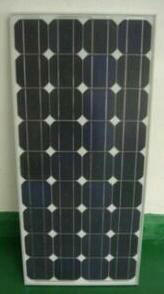 |
The DC
voltage from the solar panels would then feed current to a large 12v battery.
To insure that the battery is not overcharged, a quality battery charge
control box would need to be inserted between the two solar panels and the
battery. I like the kind of product which also shows the condition of the
battery as the type shown below.
|
|
75 Watt Solar Panel |
|
|
| Next,
a DC to AC inverter will be needed to convert the 12 volts from the battery into
120vac for the computer and any other AC loads. The switch mode power supplies used
in modern computers should work will with the cheaper modified sine type inverters.
These units are quite efficient and generate a voltage waveform which looks like
160v positive and negative pulses, lasting about 6 milliseconds. This averages out
to produce the needed 120vac and also has the expected 160 volts peak voltage, which
many power supplies expect. |
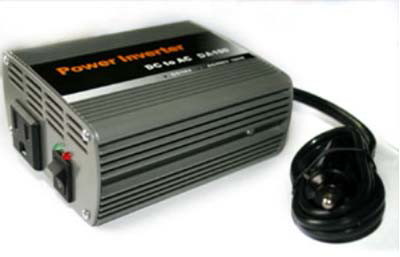 |
I think a pretty standard 150 watt modified sign wave inverter should work for
this application. The added power margin might be nice for short term extra
power needs. The inverter could draw power from a medium size 12v lead acid
battery.
Finally, the writer will need a rechargeable battery. Although he may only
need 600 watt-hours, the battery should be rated at twice this figure, to
insure a long life. That would put it at 1200 watt-hours. Divide that by 12
and you get 100 Amp-hours. So, a good 12v 100 Amp-hour sealed lead acid
battery might be what he should get. |
|
150 Watt Inverter |
|
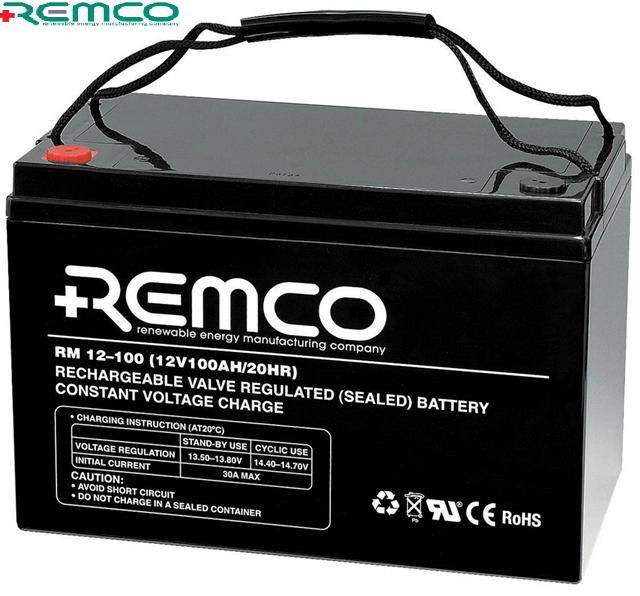 |
|
12v 100 Amp-hour Battery |
|
|
|